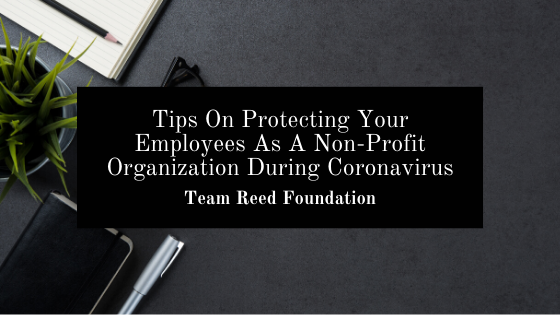Communities around the world continue to deal with the unprecedented impact that the coronavirus pandemic has had. For those working in the nonprofit sector, protecting their organizations and their employees has become a priority in recent weeks. If you are part of a nonprofit organization that is looking for tips on protecting your employees during the coronavirus, check out the helpful tips provided below.
Implement Remote Work Policies
Given that many communities have been put under some form of a lockdown, many businesses and organizations alike were forced to adjust to working remotely. As more lockdowns are gradually lifted, some organizations have required employees to return to the office, but this should be avoided if it is possible. Allowing non-essential employees to work from home as much as possible can not only protect your employees, but it can prevent further spread of coronavirus. While not every employee will be capable of working remotely full-time, organizations should work to allow employees that are able to work remotely to do so.
Limit Employee Travel
Employees with nonprofit organizations may be required to travel to businesses and other communities as part of their job. To help protect employees during the pandemic, organizations should reduce or halt as much travel as possible until further notice. For example, if employees typically travel to other offices for company meetings, move the meetings online instead. This will help an employee stay safe by adjusting how the meeting is achieved.
Examine Upcoming Events
Most nonprofit organizations hold both small and large fundraising events throughout the calendar year that can bring in a larger audience. Given the ongoing situation with coronavirus, most states have implemented a ban on large gatherings, which could impact events held by nonprofit organizations. Take the time to go through the upcoming events until the end of the year, and determine if adjustments need to be made. Changes could include reducing the size of the event or shifting towards outdoor venues. Planning ahead for social distancing measures could prevent major problems from arising closer to the event.
It is important to remain calm and transparent with employees throughout the process, as well. This can help make the situation easier for the organization as a whole.

